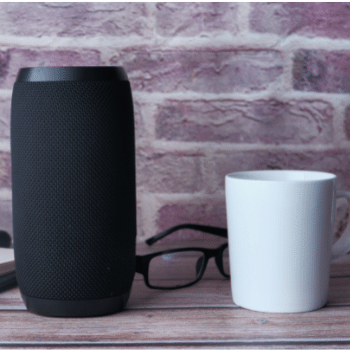Digital assistants or digital spies? Beware of this kind of technology!
 When virtual assistants became widely available to the end consumer, there were those who were impressed by the futuristic concept that this technology dared to represent. We had in our homes something that, until then, had only existed in science fiction movies: an artificial intelligence capable of understanding everything we say, of receiving commands, and of performing the most diverse tasks within its scope.
When virtual assistants became widely available to the end consumer, there were those who were impressed by the futuristic concept that this technology dared to represent. We had in our homes something that, until then, had only existed in science fiction movies: an artificial intelligence capable of understanding everything we say, of receiving commands, and of performing the most diverse tasks within its scope.
It all started with cell phones - overnight, you could ask your gadget whether it was going to rain tomorrow or how long it would take to drive to your office (taking into account traffic conditions) and it would answer you within a few seconds. These assistants were then incorporated to specific devices that continuously eavesdrop on you in your living room or even your bedroom.
There are several examples: the Google Assistant, Amazon's Alexa, Microsoft's Cortana, and Apple's Siri. All of these can be found in appliances for your home (such as the Google Home, the Amazon Echo, and the Apple Home Pod series of smart devices), and can even be used to control other smart devices such as lamps, speakers, connected locks, and so on.
But what about privacy? As much as many consumers may not realize it, the so-called "smart speakers" - which should only start listening to you when you activate them by saying "Ok, Google" - may be listening to everything that is said around you and sending these recordings without your permission to servers thousands of miles away.
Artificial Intelligence, but not so intelligent
Have you ever thought about how scary it can be to have an electronic device listening to everything that happens in your home and discovering your interests? No wonder Amazon recently disclosed that it received 27,600 requests from government agencies during the last six months of 2020 - which includes usage information on Alexa users.
Not all requests are granted by the company, but cases in which recordings, commands, and surveys of digital assistants are used as evidence in criminal investigations have become increasingly common. Even if the audio files are not stored by the companies, the usage profiles of these solutions leave important traces regarding user attitudes, interests, and even consumption profiles.
Furthermore, there have been repeated cases in which Alexa infrastructures, for example, end up getting “confused’ and mix up the audio files of their users. There have been reports, for example, of an internet user who obtained recordings from another random person; a resident of Oregon City (USA) also discovered that her Echo device had sent several private conversations to her husband's boss "by accident”.
You must also remember that every time you make a request or ask a digital assistant a question, other data are sent - including information about the device used, the user ID, and the geolocation. Is it really worth putting your privacy at risk in return for simple facilities, such as using a simple voice command to play a playlist? Should we trust big tech companies?
Is it really necessary? You decide
Again, it is undeniable that personal assistants are extremely useful and play an important role in making our lives easier, using the most advanced features of the Internet. Features such as voice identification and always-on capture (where the A.I. keeps the microphone permanently on to respond immediately to commands) make our daily lives easier, but also increase data collection.
As much as the capturing of information is theoretically done in order to optimize the algorithms of these assistants, one must take the following into account: is it really worth the risk of having our conversations stored by large companies and our secrets transcribed by remote operators just to avoid having to press some buttons? Be careful and thoroughly review the privacy policies of each company before using an assistant or purchasing a smart speaker.
Article translated from: Assistentes digitais ou espiões digitais? Cuidado com esse tipo de tecnologia! — Perallis Security
